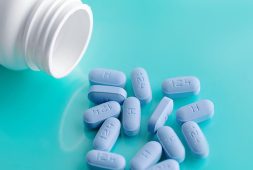
A recent review made has alluded to how probiotics may improve cognitive function or lessen cognitive decline in adults. Children, however, have not been included. The current studies that available for analysis had limitations. Hence data interpretation and conclusions are not as definitive as they should be. Much evidence available from large, well-designed randomized-controlled trials is much needed. This will help researchers determine the effects and real-world applications and come up with a solid conclusion.
Inside the human microbiome is the community of bacteria, fungi, and viruses. These inhabit the body and they have a direct impact on health. In fact, scientists estimate that there could be just as many microbes in the body as there are human cells. This is a fact unknown to many. The microbes that live on or in our bodies have a job. The good ones protect us from disease-causing and dangerous organisms. The task of the others is to promote immune system development and assist in better digestion. More importantly, many health experts believe that there is a two-way relationship between the brain and the gut. The facts of this have yet to be fully understood.
The Connection between the Brain and the Gut
When scientists modified the gut microbiome in experiments they performed in mice, this induced behavioraland cognitive changes. These, in turn, altered levels of substances that were vital to learning, reasoning, and memory. There were also other studies made and these somehow point to the fact that changes in the gut microbiome make-up may have an impact on the development and progression of cognitive impairment observed in those with Parkinson’s disease, schizophrenia, major depressive disorder (MDD), and Alzheimer’s disease.
Dr. Scott Kaiser is the director of geriatric cognitive health for the Pacific Neuroscience Institute at Providence Saint John’s Health Center. He was not involved in the paper made, but he spoke to Medical News Today about this and said, “There’s a mounting body of evidence showing clear connections between our gut health and our brain health, and specifically within gut health […] the constellation of different types and proportions of bacteria.”
The new systematic review that came out was from the researchers at the University of Reading, in the United Kingdom. Their goal was to determine whether supplementation with probiotics, those involving dietary supplements that contain the live microbes, did benefit cognitive function. What they did was analyzed human studies with at least one live probiotic strain and at least one cognitive outcome performance measure: memory, attention, or executive function.
The findings of their research come out in the journal Neuroscience & Biobehavioral Reviews. The research done was partially funded by Winclove Probiotics. After the researchers applied the criteria given, they were able to identify 30 studies that matched the eligibility requirements they made. They then grouped the results by age groups: infants and children, young and middle-aged adults, and aging adults.
The Effects on Infants
Three studies examined the effect of probiotic supplements that were given to infants that were born prematurely and were extremely underweight. These young ones got the probiotics from when they were first able to feed until they left the hospital. The health of these infants was monitored from 18 months to 5 years after and they found that the probiotics given bore no significant impact on the cognitive development of these children.
Two studies that were taken in full-term infants also bore essentially similar results. These probiotics had no significant effect on the cognitive outcomes. However, it is also good to note that the findings and the study itself contained limitations because of a lack of data about whether or not the babies were fed breast milk. This is vital in the study because breast milk contains natural prebiotics. The formula, on the other hand, does not.
The Effects on Younger and Middle-Aged Adults
Four studies that assessed whether probiotic supplementation in people with cirrhosis, which is known as permanent liver scarring, affects the severity or development of hepatic encephalopathy.
As for those unfamiliar with the term, this is a complication of cirrhosis that may cause impaired the memory and intellectual functioning of the sufferer.
In one study, participants who suffered from hepatic encephalopathy had received probiotics for 60 days. They showed significant improvement after 30 days in terms of the three cognitive tasks measured. However, there were also three studies that found in people with cirrhosis but no hepatic encephalopathy and with probiotic supplementation failed had improved cognitive assessment scores after 8 to 12 weeks of the study.
In a pilot study and a larger placebo-controlled trial that was not randomized, adult participants with HIV also received probiotics for 6 months. Both these studies saw a significant improvement in standardized tests of immediate and delayed memory, verbal fluency, and visuospatial working memory.
In three studies that included people with fibromyalgia, chronic fatigue syndrome, or MDD, probiotic interventions were connected to improved cognitive outcomes. In the fibromyalgia study, participants took an 8-week probiotic treatment. They saw a reduction in impulsive choices. Then, those with chronic fatigue syndrome who received a 4-week course of probiotics plus an antibiotic, erythromycin, saw better attention, processing speed, story memory, cognitive flexibility, and verbal fluency.
An 8-week study demonstrated improvements in short-term memory and visual search in those who suffered from MDD and who had received probiotics with a serotonin reuptake inhibitor. This is a medication that experts prescribe for depression. They compared the findings with those who only received the serotonin reuptake inhibitor.
However, several studies testing for cognitive improvements in healthy adults had varied outcomes. Five showed inconsistent improvements in different cognitive measures, including stress-related processing, while two studies saw no effect of probiotic supplementation.
The Effects on the Aging Population
Three studies investigated the effects of probiotic supplementation in those who suffered from mild cognitive impairment. A pilot study found that 24 weeks of probiotic treatment had beneficial impact on mini-mental state exam (MMSE) scores, which is a screening test done for cognitive impairment. However, a larger follow-up placebo-controlled study showed significant improvement in MMSE scores in the placebo and probiotic groups before treatment at 12 weeks.
A third study made also demonstrated significant improvements in three tasks related to memory and attention in those who suffered from mild cognitive impairment and had received a probiotic supplement after 12 weeks. The three studies made in those with Alzheimer’s disease and who had received probiotics for 12 weeks showed different effects on cognition. Two of which showed an improvement in MMSE scores, but one study that made use of another test to measure cognition did not see any significant effects.
There were also two more 12-week studies involved that measured the cognitive effects of probiotic supplementation in healthy aging adults. The first one saw a significant improvement in information processing and task execution that involved executive functioning and they compared results with a placebo. The second found no difference in cognitive functioning between the group that received probiotics and the control group.
Takeaway Thoughts from Experts
Dr. Vernon Williams, director of the Center for Sports Neurology and Pain Medicine at the Cedars-Sinai Kerlan-Jobe Institute, in Los Angeles, also shared his thoughts with MNT. He talked about the review’s findings but he was not involved in the research in any way.
As Dr. Williams explained, the review demonstrates that “there is evidence, particularly in adults, of a relationship between gut health and the use of probiotics and cognitive functions.”
“I’m happy to see that there’s more and more objective evidence,” he also said, “and I’m hopeful that this kind of information becomes more widespread and used by practitioners who are treating individuals across the lifespan.”
Although the doctor expressed optimism towards the results shown, he also noted the difficulties when it comes to making conclusions from a systematic review. He was specifically concerned that participants had illnesses with different degrees of severity.“So you’re kind of comparing apples and oranges — particularly when you include people with [mild cognitive impairment] and AD.”
He then added, “It’s very difficult to rule out confounding factors — whether it was the gut microbiome or the probiotics, or some other dietary or lifestyle factor.” Dr. Williams also spoke about the need for additional research, particularly those that involved larger controlled trials of specific probiotics with a wider range of cognitive assessments. “There’s still a lot to be learned, in terms of the mechanisms of action,” he said.
Accoding to Dr. Williams, “This seems to be a safe approach in middle-aged and older adults. […] I don’t think anyone is saying that probiotics will cure cognitive dysfunction in and of themselves, but they may provide a significant piece of the puzzle and may be significant, in terms of their contribution to improving these kinds of symptoms.”
Dr. Kaiser then said, “Right now, we have nearly 6 million people in the [United States] with Alzheimer’s disease, and it’s predicted that within the coming decades, globally, there will be over 130 million people with dementia. This type of work that looks at potential modifiable risk factors and potential targets for prevention and treatment is critical.”
“This gives us something that we can do to stem the rising tide of […] dementia. Hopefully, [it] can be a key target of something that we can affect, either through lifestyle changes — what we eat and what we don’t eat — or through supplementation with different prebiotics, probiotics, and synbiotics,” he said in conclusion.



